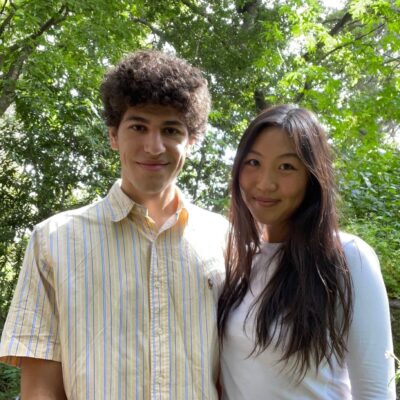Katherine Chen & Henry DeMarco (2021)
Terrae Cognitae: Mapping the New Narratives of Berkeley's Unhoused Communities
On ancient maps, terrae incognitae referred to regions beyond the bounds of the geographically known, often labelled with images of monsters or other imagined dangers. Berkeley’s homeless encampments, we contend, are popularly regarded as terrae incognitae, despite representing colloquially known neighborhoods that are populated by people with their own narratives, attachments to place, and cartographic knowledge. These encampments are often perceived to be mysterious spaces, and are absent from cartographic representation, making them targets for speculated meanings. Encampments like Seabreeze and People’s Park receive little municipal recognition and are conspicuously excluded from official maps. In our project, we will build on the abundant work and scholarship of academics, artists, and activists in the East Bay community to center voices and experiences of those living in the encampments. We are eager to collaborate with Berkeley’s encampment communities to produce robust and diverse cartographic representations of their spaces as neighborhoods. We plan to work with unhoused community members to capture the vitality of these neighborhoods through interviews, photography, art, and participatory mapping. Our aim is to help abolish the notion that tents are transient spaces that will simply disappear with time, and instead move towards a conception of tented communities as entitled to self-determination and public resources. Putting these neighborhoods ‘on the map’ will encourage those in the Berkeley community to treat formerly ‘unknown areas’ as neighborhoods. ‘Areas’ are undeveloped parcels of land, whereas recognized neighborhoods are deserving of regular trash pickup, toilets, and hand-washing stations, because they are full of our neighbors. Our goals with this project are to 1) collect and share stories on an interactive web-based map, 2) to provide unhoused people with physical anti-eviction artwork produced through our collaboration, and 3) to publish a long-format journalistic piece documenting our work. We believe that by carrying out this project, we will be able to work with these communities to develop tools for their self-advocacy, as well as providing crucial insight to the Berkeley community regarding the narratives and needs that exist within these neighborhoods.
Click here for the project website, Berkeley, 94700
Letters Home
Biography
Katherine Chen graduated UC Berkeley in 2021, Phi Beta Kappa, majoring in English. Katherine was born in California, but lived in China during her formative years, coming back to her native United States without a lick of English –– in learning it, she began her devotion to the art of literature, the power of spoken word, and the pursuit of belonging. She grew up in the East Bay playing piano, making art, gardening with her grandmother, and volunteering to combat local food insecurity. She began her undergraduate studies at UC Santa Barbara, where she was deeply immersed in the student journalism community as a host on KCSB-FM 91.9 and as a staff writer for the Daily Nexus; she continued her student journalism as an Arts & Entertainment writer for the Daily Californian. Her interest in literature has grown to include legal literature –– her past two years at Berkeley have been especially marked by her time as Project Director on Professor Kristin Luker’s research team at Berkeley Law. Her research focuses on the regulation of contraception and abortion in the 19th century, its liberalization in the 20th, and the modern intersectional consequences of that history. Katherine wrote her senior honors thesis on John Steinbeck’s Pastures of Heaven, and the ‘new indigeneity’ produced by non-Indigenous arrivants in the beautiful valley east of Monterey, exploring the relations of land and “wilderness” to its first inhabitants and its current occupants. Her thesis concerns the historical rhetoric and theory of what makes people belong to a land, and how land belongs to people. She is also a recipient of the 2021 Matthew Lyon Prize for Photography.
Henry DeMarco graduated UC Berkeley in 2021 with a double-major in geography and English literature. His dual focus in English and geography reflects his enduring interest in stories and places, and the ways in which they are inextricably intertwined. During his time at UC Berkeley, he immersed himself in the study of topics including urban inequality, global environmental change, and mapping technologies. At Cal, Henry served as Head of Photography for Caliber Magazine, a widely circulated student publication. His research as an undergraduate student involved assisting with a participatory mapping project related to human conflict with animals in Kenya’s Rift Valley, writing a senior honors thesis exploring the ongoing resurgence of psychedelic drugs through the lens of inequality, and analyzing the literature and films of California in an English seminar course. While at Berkeley, Henry received awards in recognition of his leadership and writing, and was invited to join the Phi Beta Kappa academic honor society during his junior year. Henry grew up in Madison, Wisconsin, where he frequently worked with unhoused communities from an early age, volunteering at local shelters and food banks. As a midwesterner, he is endlessly fascinated by the history, politics, and stories of California. He enjoys digital and film photography, meditation, hiking, and climbing.
